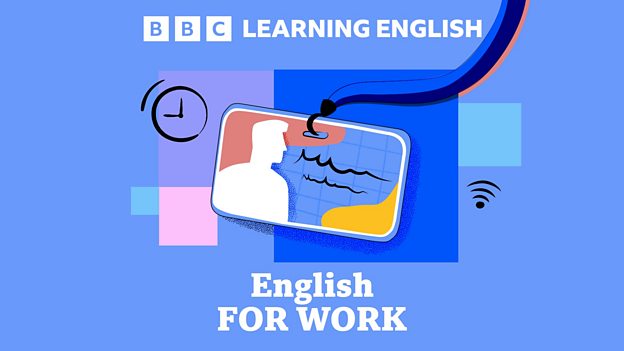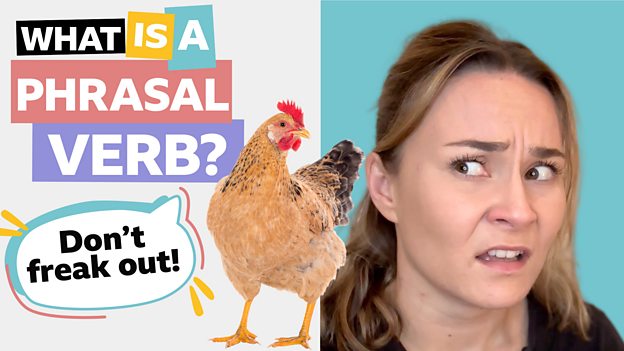6 Minute English
Intermediate level
Talking at the table
Episode 240502 / 02 May 2024

____________________________________________________________________________
Learn more about food
____________________________________________________________________________
Introduction
Is it OK to ask awkward questions at the dinner table? Beth and Neil discuss chatting at meal times and teach you some useful vocabulary.
This week's question
In 2016, a couple from Germany won the world record for the fastest time to set a dinner table. But, how long did it take them?
a) 25 seconds
b) 1 minute 5 seconds
c) 2 minutes 5 seconds
Listen to the programme to hear the answer.
Vocabulary
open up
speak more easily than usual, particularly about worries and problems
the … one e.g. the funny one, the wise one
a label for a person describing a particular prominent characteristic they have
a pinch of salt
don't believe everything you're told
children should be seen and not heard
an old-fashioned phrase meaning children should be quiet and behave well
a mixed bag
something that has good and bad aspects
culture shock
an uncertain feeling when in a new and different environment
TRANSCRIPT
Note: This is not a word-for-word transcript.
Neil
Hello. This is 6 Minute English from BBC Learning English. I’m Neil.
Beth
And I’m Beth.
Neil
In this programme, we’ll be discussing the dinner table – but we’re not interested in food. We’re talking about… talking!
Beth
A lot can happen around the dinner table – gossip, arguments. You might meet the love of your life on a blind dinner date or find out you're a great storyteller. Neil, when you were younger, did you eat with your family around a dinner table?
Neil
We did! Eating at the table was an important ritual. It was something we did every day and, quite often, it was the only time we could get together and chat. I think there's something very comforting about eating good food and being with the people you're closest to and now I do the same with my own family. The kids are more likely to open up, talk more easily, about their day or something troubling them while we're eating.
Beth
Well, the dinner table is a space that families across the world get together at to not only eat, but chat, and is often the only point in the day or week that the whole family gathers together. In this programme, we’ll be discussing how people behave at the table, and, of course, we’ll be learning some useful new vocabulary as well.
Neil
But first I have a question for you, Beth. In 2016, a couple from Germany won the world record for the fastest time to set a dinner table. But, how long did it take them? Was it:
a) 25 seconds
b) 1 minute 5 seconds
c) 2 minutes 5 seconds
Beth
Surely not 25 seconds! I'll guess 1 minute 5 seconds.
Neil
OK, Beth, I'll reveal the answer later in the programme. Now, while eating with a group, you might feel that you need to act in a certain way because of the people around you. Philippa Perry, a psychotherapist and author, thinks we should try to be ourselves as much as possible, as she told BBC World Service programme, The Food Chain:
Philippa Perry
In any group we find a role and, if we're only in one group, if we're only ever with our family, we might think, 'oh, I'm the funny one', 'he's the wise one'. We might think that's who we are. And then we go to another group and then we find, 'oh, I'm the wise one'. And I think if you feel like you're assigned a role in your family, I just think take that with a little bit of a pinch of salt.
Beth
When you spend time with the same group of people, you might start to think of yourself as 'the funny one' or 'the wise one'. When we say 'the … one', we describe a person by using a particular and prominent characteristic they have. If you're very tall, you might be 'the tall one'.
Neil
However, Philippa says we should take these labels with a pinch of salt – an idiom meaning you shouldn't believe or do everything you are told or that's expected of you.
Beth
Now, over time, interactions at the dinner table have changed. In the past, children were sometimes seated on a different table to adults or told they should be seen and not heard, an old-fashioned phrase emphasising that children should be quiet and always on their best behaviour. Ambreia Meadows-Fernandez, a writer and founder of Free Black Motherhood, spoke about older generations’ reactions to children asking awkward questions at the dinner table to BBC World Service programme, The Food Chain:
Ambreia Meadows-Fernandez
So, it's a mixed bag. It's overwhelmingly positive, but I also know that it is kind of a bit of culture shock for them to hear my children ask what they ask because our children haven't really been raised with that line of demarcation between the adult table and the kid table.
Beth
Ambreia says that the older generation's reactions to her children's questions at the table can be a mixed bag. A mixed bag is a situation that can have positive and negative aspects. She also says that it's a culture shock for them – a sense of feeling uncertain because you're in a different environment to usual.
Neil
OK, Beth. I think it’s time I revealed the answer to my question. I asked you what the world record is for the fastest time to set a dinner table.
Beth
And I said it was 1 minute 5 seconds.
Neil
And that was… the right answer! That's not very long, is it? OK, let's recap the vocabulary we've learned from this programme, starting with open up – a phrasal verb meaning speak more easily than usual, particularly about worries or problems.
Beth
If someone is 'the funny one' or 'the wise one', they are labelled by that particular characteristic.
Neil
To take something with a pinch of salt means you shouldn't believe everything you're told.
Beth
Children should be seen and not heard is an old-fashioned phrase that means children should be quiet and behave well.
Neil
A mixed bag means something has both positive and negative aspects.
Beth
And finally, a culture shock is an uncertain feeling because you're in a new environment. Once again our six minutes are up. Join us again soon for more useful vocabulary, here at 6 Minute English! Goodbye for now!
Neil
Bye!
Latest 6 Minute English
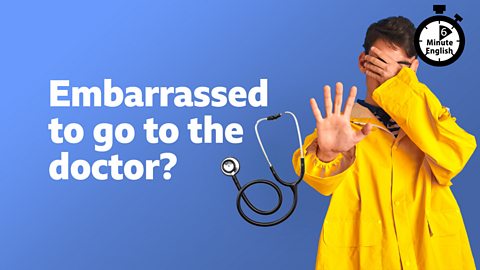
Embarrassed to go to the doctor?
Episode 241226 / 26 Dec 2024
Have you ever been embarrassed to go to the doctor?
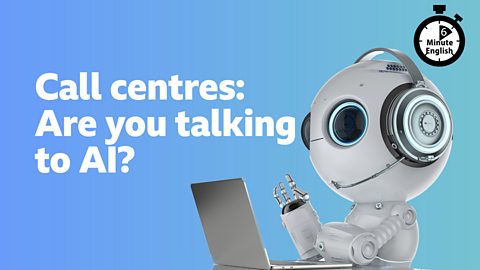
Call centres: Are you talking to AI?
Episode 241219 / 19 Dec 2024
Have you ever phoned up a company and had your call held in a queue? Could AI make this less painful?

Making 'mum friends'
Episode 241212 / 12 Dec 2024
Is making new ‘mum friends’ the positive experience it’s often described as?
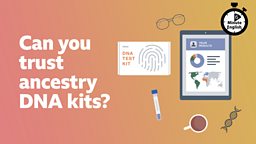
Can you trust ancestry DNA kits?
Episode 241205 / 05 Dec 2024
Are DNA ancestry tests a reliable way to trace your ancestry?

How babies learn to talk
Episode 241128 / 28 Nov 2024
What do babies need to learn to do to be able to talk?
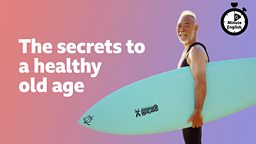

The bond between sisters
Episode 241114 / 14 Nov 2024
Are the stereotypes about older and younger sisters true?


Why you need a good night's sleep
Episode 241031 / 31 Oct 2024
Why is it so important to get a good night's sleep?

Divorce: Why does it happen?
Episode 241024 / 24 Oct 2024
How is divorce talked about in different countries?


Did Taylor Swift fans cause an earthquake?
Episode 241010 / 10 Oct 2024
Did Taylor Swift move the Earth?

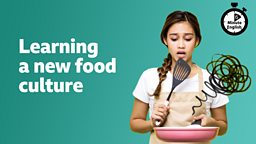
Learning a new food culture
Episode 240926 / 26 Sep 2024
Would you find it different to adapt to a new food culture?

Saving water in the driest place on Earth
Episode 240919 / 19 Sep 2024
How do farmers in the driest place on Earth manage to grow crops? With this solution!

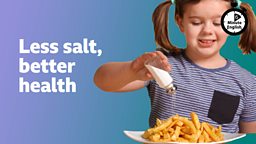

Chocolate: Meet a real Willy Wonka
Episode 240829 / 29 Aug 2024
Would you like to be a chocolate maker, like Roald Dahl's Willy Wonka?

Why we love dumplings
Episode 240822 / 22 Aug 2024
Warning! This episode might make you very hungry...

Kids and climate change
Episode 240815 / 15 Aug 2024
What are young people's thoughts on climate change?


The science of falling in love
Episode 240801 / 01 Aug 2024
What's really happening in our brain when we fall in love?
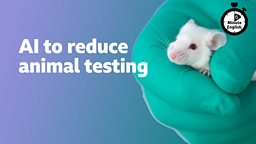
AI to reduce animal testing
Episode 240718 / 18 Jul 2024
Could AI reduce the need for animal testing?

Why read books, not screens?
Episode 240718 / 25 Jul 2024
Why is it better to read from a book than a screen?

The school that puts the kids in charge
Episode 240711 / 11 Jul 2024
What happens when you put the kids in charge of the school?

What can we learn from toddlers?
Episode 240704 / 04 Jul 2024
Learn to speak to yourself in the way that toddlers do!
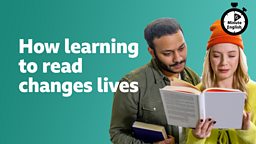
How learning to read changes lives
Episode 240627 / 27 Jun 2024
How can literacy change people's lives?

Building a better world with wood?
Episode 240620 / 20 Jun 2024
How can buildings made from wood help our mental health?

How names can tell painful stories
Episode 240613 / 13 Jun 2024
Could our name have painful baggage?

E-rickshaws driving away pollution
Episode 240606 / 06 Jun 2024
Could E-rickshaws give us cleaner air?




Bitter food, better health?
Episode 240509 / 09 May 2024
Could bitter foods be better for your health?
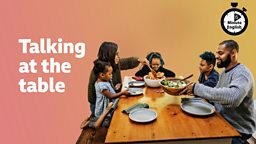






Disability in music and theatre
Episode 240321 / 21 Mar 2024
Learn about the people who are making it easier for disabled musicians and music fans to perform and see live music


Sewing to fight period poverty
Episode 240307 / 07 Mar 2024
Period poverty affects over 500 million people worldwide. How can a volunteer project help?

Plastic waste eaten by enzymes
Episode 240229 / 29 Feb 2024
Plastics can be difficult to recycle. Could a recently discovered enzyme help?
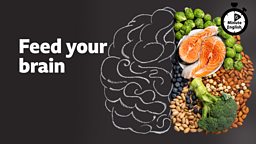
Feed your brain
Episode 240222 / 22 Feb 2024
Food is fuel for our brains. So, what should we be eating?
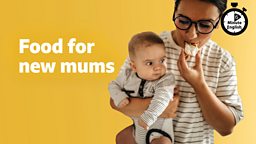
Food for new mums
Episode 240215 / 15 Feb 2024
Having a baby is exhausting! What do mothers need to eat after giving birth?
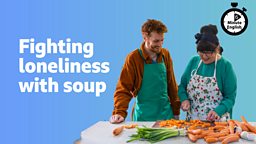
Fighting loneliness with soup
Episode 240208 / 08 Feb 2024
Hear how a project in the Netherlands is helping in the fight against loneliness

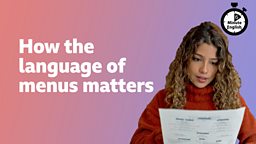
How the language of menus matters
Episode 240125 / 25 Jan 2024
Why is the language used on menus important?





